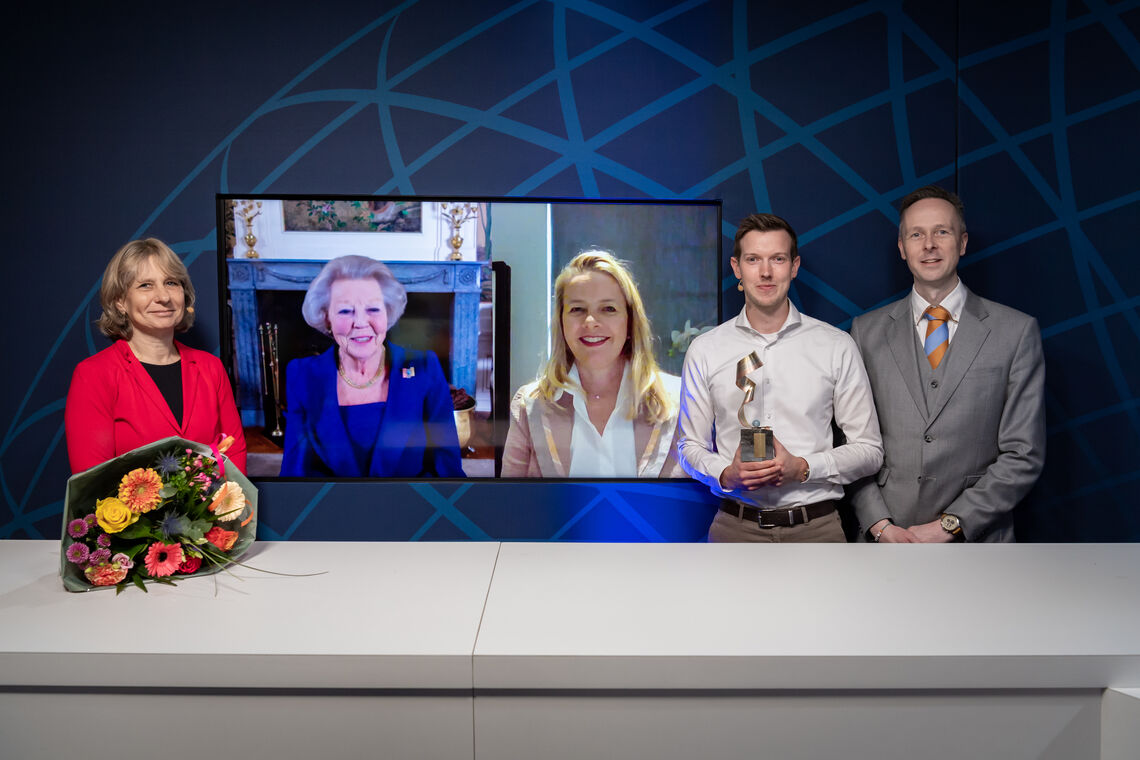Alumnus Marijn van Rooij wins Prince Friso Engineering Award 2022
Marijn van Rooij, Industrial Engineering and Management alumnus, has won the Prince Friso Engineering Award 2022. Van Rooij is co-founder and CTO of Ocean Grazer bv, which developed a technology to store energy on the seabed. The prize was awarded on March 16 by the Royal Institute of Engineers (Koninklijk Instituut van Ingenieurs, KIVI). Princess Beatrix and Princess Mabel were also present via an online connection . The KIVI jury praised Van Rooij's great contribution to solving an important and socially relevant problem.
Marijn studied Industrial Engineering and Management at the Faculty of Science and Engineering of the University of Groningen. He is co-founder and CTO of Ocean Grazer bv, where he has been doing research for about five years now. The Ocean Grazer harvests renewable energy from sea waves and integrates it with a modular solution for large-scale storage of electricity generated by wind turbines and floating solar parks at sea.
The prestigious Prince Friso Engineering Award was awarded for the eighth time this year. The Royal Institute of Engineers (KIVI) wants to use the prize to increase the visibility of excellent engineers and their work. In addition to the prize for Marijn van Rooij, the Public Prize was awarded to Nikéh Booister from Sweco and the MSP Maastricht team won the Student Prize.

More news
-
26 January 2026
Science for Society | The AI chip of the future
